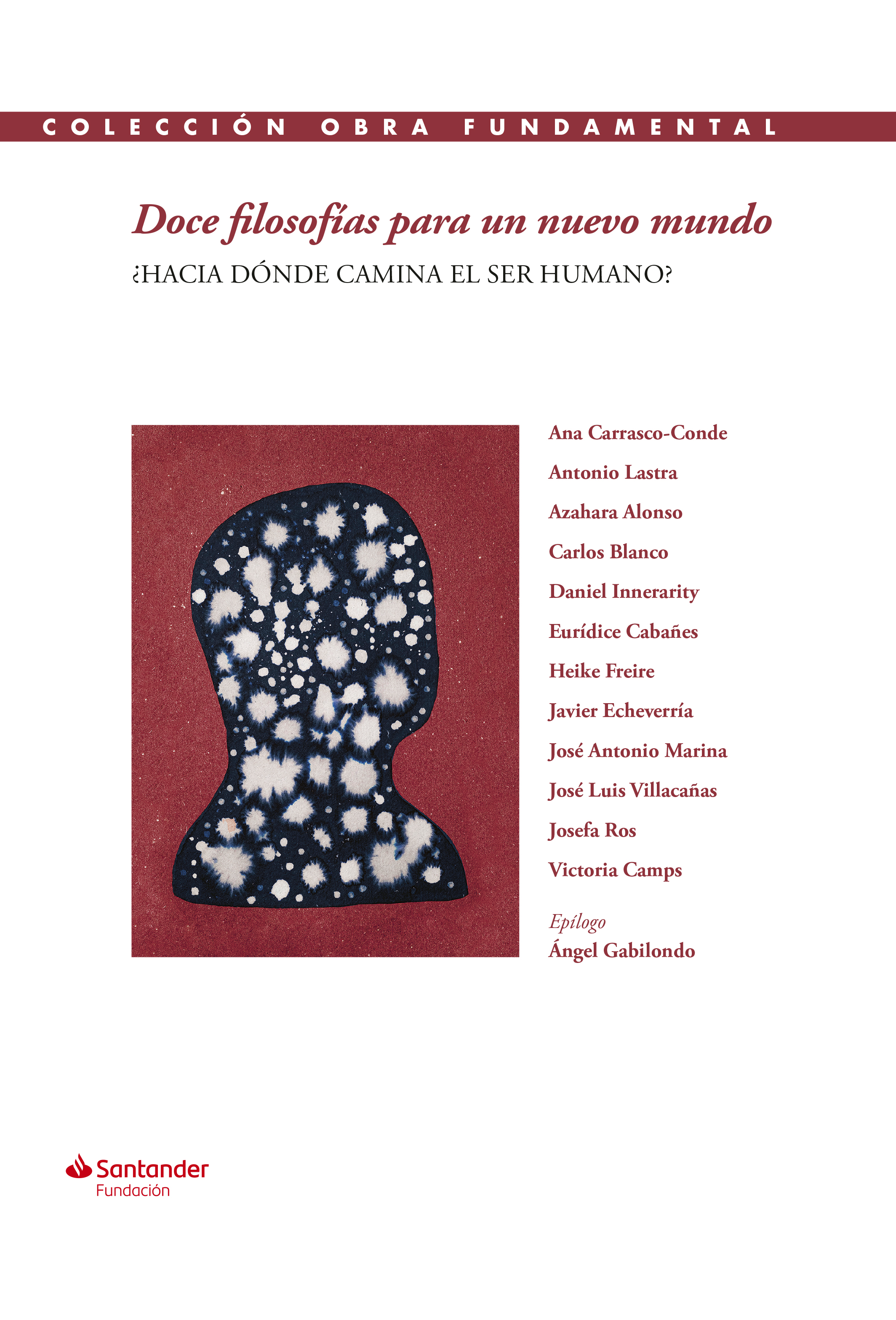We are riding the world on a wave of profound transformation that summons us. We are living through dizzying changes that bring uncertainties associated with what it means to be human and the redefinition of concepts such as freedom, politics, technology, genetics, Nature, etc. Philosophy encourages us to question the paradigms of the realities and illusions that shape us, and to develop self-knowledge and singularity, without forgetting the value of the collective, the natural and the cosmic sense of existence. For this reason, we asked twelve renowned philosophers: where is the human being walking towards?
Ana Carrasco-Conde, Antonio Lastra, Azahara Alonso, Carlos Blanco, Daniel Innerarity, Eurídice Cabañes, Heike Freire, Javier Echeverría, José Antonio Marina, Josefa Ros, José Luis Villacañas, Victoria Camps and Ángel Gabilondo delve, through twelve unpublished and exclusive essays, into twelve perspectives that reveal essential keys and dark angles of our contemporaneity in the face of the future challenges that await us.
Javier Expósito Lorenzo, literary manager of Fundación Banco Santander, writer and poet, prologues and anthologises these filósofos, interviewing them in the included podcasts.

